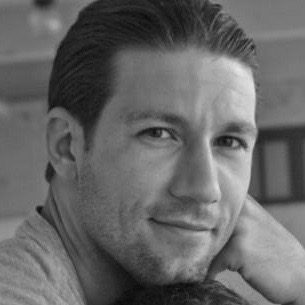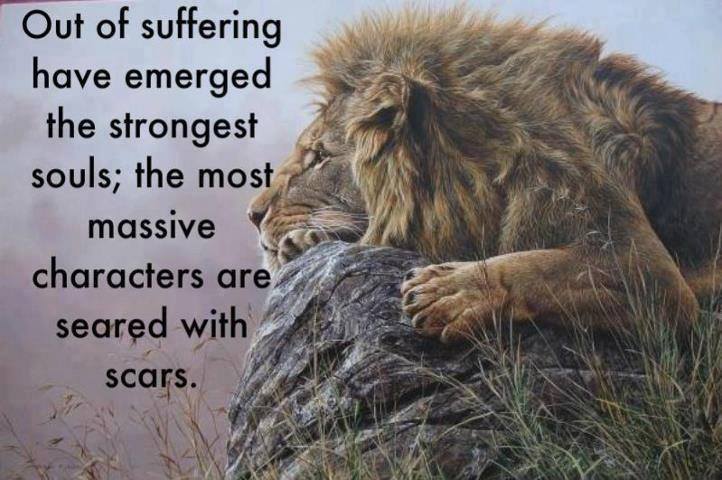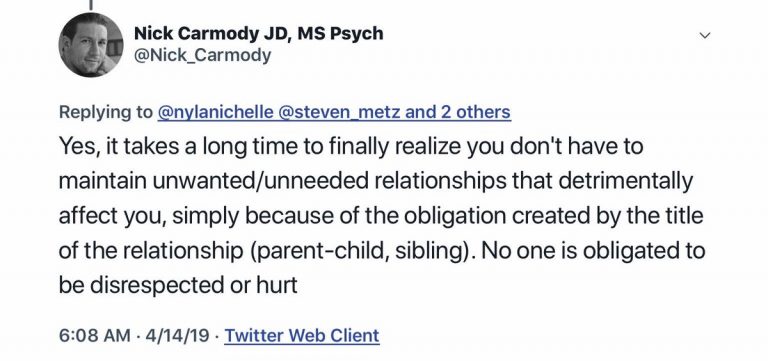
Nick Carmody
JD, MS Psych Psychotherapist
Adversity Doesn't Build Character, It Exposes it....

Toxic Relationships / Cluster B Personality Disorders

Narcissistic Personality Disorder often prevents parents from performing a functional role in their children’s lives. Narcissistic parents tend to view their children as extensions of themselves or “ego accessories”. Often children are valued, or devalued, based on how well they feed, perpetuate, or help to sustain the grandiose self-image of the narcissistic parent. As a narcissistic extension of the parent, the child’s achievements, as well as the attention that those achievements bring, are often co-opted by the parent as if they were the parent’s own achievements (a psychological “merging”). Children who fail to meet a narcissistic parent’s inflated expectations are shunned, emotionally abandoned, or even abused because the narcissistic parent is neither willing nor able to allow their child’s behavior, actions, and/or failures to negatively reflect upon them because any appearance of imperfection or lack of excellence threatens to expose the psychological façade or mirage by which the narcissistic parent lives their day-to-day life. The result of all of this can be a “shattering of the self” for the child, due to the toxic, damaging environments created by the narcissistic parent. As a result, the Pathological Parenting often has a profoundly negative effect on the development of the child, often causing severe disturbances in the development of his/her identity. This would suggest that (that in some cases) narcissism could be the by-product of having a narcissistic parent, and that it could be a pathology that is cycled down from generation to generation in a “steal it forward” type of dynamic, where the current generation (mother) reaches forward to rob the subsequent generation (granddaughter) of need-fulfillment, to fill the void that was left by the previous generation (grandmother). Essentially, in a situation where the emotional/psychological childhood needs aren’t met by a parent, that child then fills that void in adulthood by using their children to backfill that void, and thereby create or perpetuate a cycle.
“I’ve come to the conclusion that there’s often two types of people that stay in bad relationships: the very weak, and the very strong. Obviously, the weak stay because they lack the strength, courage, confidence, means, etc., to leave. Whereas the very strong stay and put up with shit because they can, because have the ability to let it roll off their back, or to be the bigger (wo)man, in hopes that the person/relationship that they’ve so heavily invested in will eventually figure it out. One slight, one incident of disrespect, and/or one indiscretion does nothing because you’re strong. But the problem is that over time, those incidents add up and take a toll and change you without you realizing it. And before you know it, you look back on who you used to be, and who you’ve allowed the other person and/or the situation (along with your own complicities/acquiescence) to cause you to become, and you find that you’re unrecognizable at times. The analogy that I use is that of a sandy beach, where the shoreline represents who you are, and each gentle wave represents a minor disrespect. One wave does nothing, it’s just one wave. At worst, maybe a few grains of sand are washed away. But over time, perhaps years or even decades, thousands of “disrespectful” waves wash over you. And before you know it you look over the beach and you realize that it’s unrecognizable because so much of the shoreline has eroded. That’s what happens in these types of relationships: there’s an “erosion of self”. Part of the challenge after a divorce/break up is building that “shoreline” back up.”
Yes, when trauma or negative emotion accompanies an otherwise functional or healthy human experience, people become conditioned to expect, need, seek out & incorporate dysfunction/trauma into their relationships because it’s what they are familiar with 1/.
https://twitter.com/Nick_Carmody/status/1125519130986029056